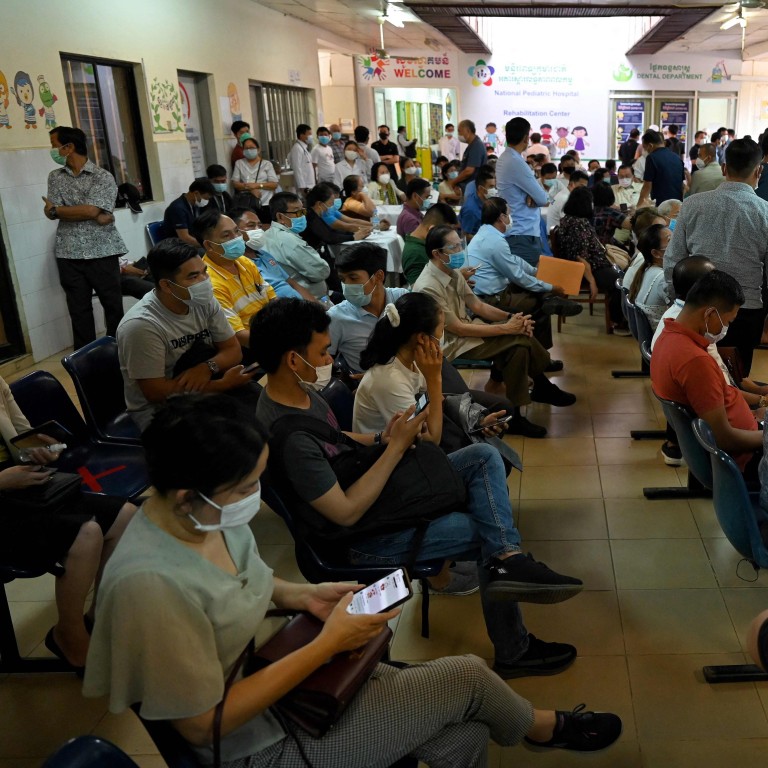
As Cambodian workers flee Thailand’s coronavirus surge, exodus overwhelms border facilities
- Since Thailand attempted to contain the spread of Covid-19 by closing its borders in March 2020, more than 215,000 Cambodian workers have returned, one activist said
- Thailand’s recent spike has created a ‘dark situation’ at the Cambodian border, where quarantine centres are packed, increasing the risk of the coronavirus being transmitted
Thoeurn, 41, recalls his wife experiencing breathing problems days before their journey. She tested positive for coronavirus but they kept the results secret, boarding a bus from Bangkok on July 25 and crossing into Cambodia the same day.
Prayuth takes aim at Thailand’s celebrities as vaccine outrage mounts
“We decided not to let anyone know that we have a positive [test] for Covid as we were afraid that they won’t let us ride in the bus if they knew about it,” said Thoeurn, who has been staying in a quarantine centre in Cambodia’s Pailin province for about a week.
“In Thailand, [they] are out of control [and unable] to provide the treatment, and we’re not the priority for them, because they need to treat their citizens first.”
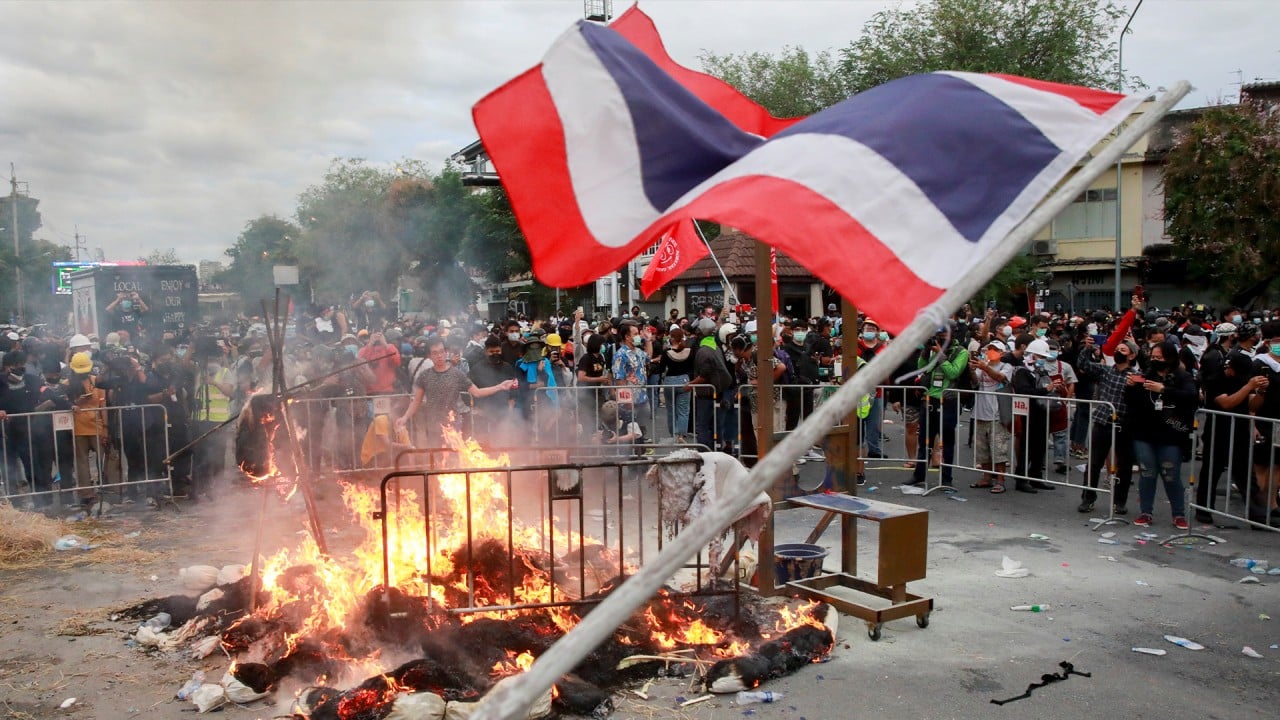
03:07
Thailand sees overwhelmed hospital morgues and renewed protests amid biggest Covid-19 outbreak
After crossing into Pailin, Thoeurn and his family were tested and placed in a room with about 20 people. He was uncertain about how he will earn a living in Cambodia but was nonetheless grateful he was able to afford the bus tickets for the trip.
“I feel sorry for many others who can’t afford [the journey] as they were unemployed for three or four months already and the money they earned before was sent back home,” he said. “So now they stay in Thailand with starvation and sickness from the virus’s infection, as no one does anything to help them return to our motherland country for treatment.”
Covid-19 vaccines: is fractional dosing a solution for supply-short Southeast Asia?
Cambodia, on the other hand, has reported a decrease in new infections, with 560 cases reported on Monday, a dramatic reduction from the peak on June 30 when the country recorded 1,130 cases.
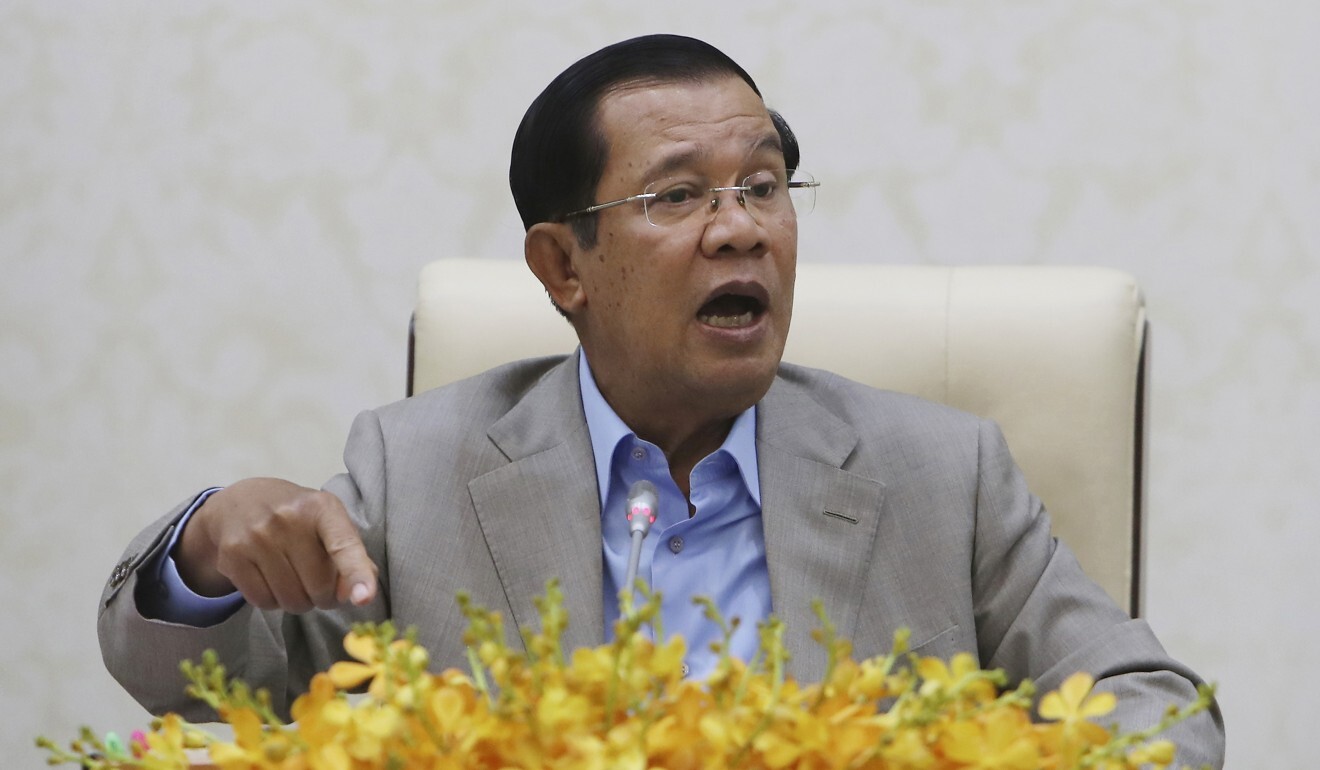
According to Kristin Parco, chief of the International Organisation on Migration (IOM) in Cambodia, the number of Cambodians returning from Thailand surged from 6,876 in April to 12,509 in June. IOM staff also reported seeing more workers entering during July, perhaps double or even triple from the month before at some major checkpoints, she said.
“Since Thailand began to curb Covid-19 by reducing its economic activities and closed its borders in March 2020, more than 215,000 Cambodian migrant workers have crossed the border from Thailand to Cambodia,” Parco said via email.
Workers returning through unofficial checkpoints or experiencing crowded conditions when placed in official quarantine “is a current gap in the implementation of public health policy in Cambodia” that contributes to the spread of the virus nationwide, Parco said.
Cambodia to mix Sinovac, AstraZeneca shots as Covid-19 vaccine boosters
IOM has been assisting with paperwork, data collection and personal protective equipment (PPE), as well as helping develop a UN response plan for responding to the influx of migrant workers, she said.
“With the current numbers, the system is being overwhelmed,” Parco said. “There is an urgent need to support health care workers at the border with PPE and further capacity building, and provide food assistance to migrants arriving at points of entry and to those at quarantine facilities.”
Quarantine centres in the border provinces are nearly full, she said, contributing to a range of concerns regarding hygiene, safe transport and access to medical attention.
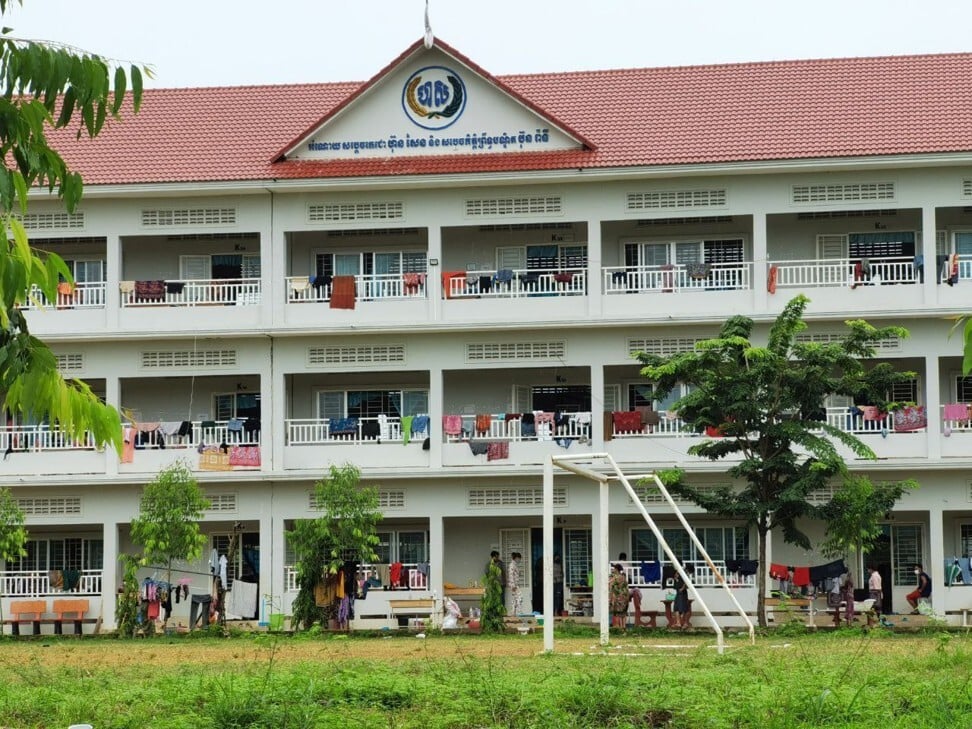
“There is also a risk of transmission at the quarantine facilities as many of them (e.g. schools) do not have appropriate isolation facilities and some migrants are tested positive upon arrival,” Parco said.
Returning to Cambodia can cost about 4,000 Thai baht (US$121). Many of the returning workers do not have legal documents, leaving them vulnerable if they contract Covid-19 and cannot access health care.
“It’s a dark situation,” said Loeng Sophon, a Thailand-based officer for Central, a Cambodian labour rights group. “[Migrant workers] cannot go anywhere, they cannot settle and they don’t have enough food.”
In Cambodia, stateless ethnic Vietnamese stuck at border amid Covid-19
Sophon said some workers remained at border checkpoints after trying to cross, and some temporary accommodation established by Thai authorities had turned people away.
“Yesterday, 100 people called me, and they say they are staying on the street, they don’t have any place to stay,” he said.
Korb Srey Phors, a 31-year-old food seller, also made the decision to return from Thailand to her home in Sihanoukville. In June, she found a job working for a merchant in Thailand’s Rayong province. On her first day, her husband crashed their motorcycle while she was on board, leaving her with a serious injury to her leg. She underwent partial surgery in Thailand but preferred to continue treatment in Cambodia.
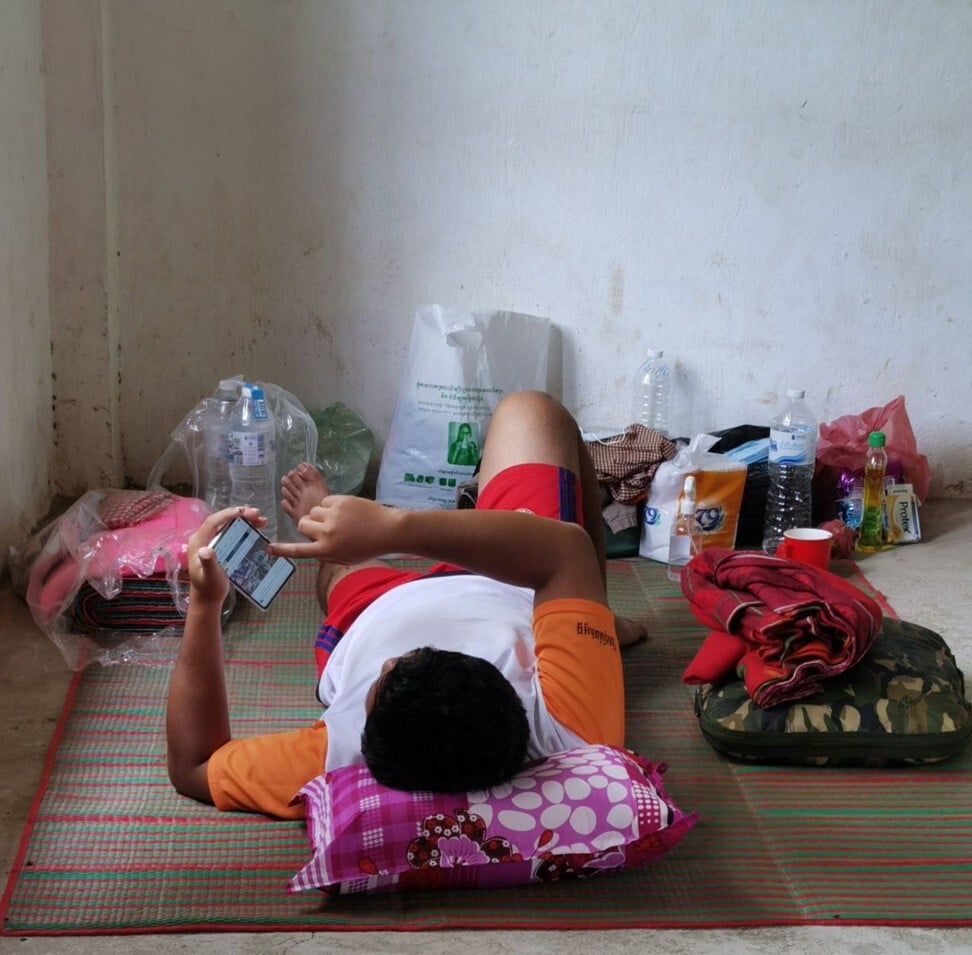
She has spent three weeks in a quarantine centre in Cambodia’s Koh Kong province but has received no medical attention for her injury.
She cannot move or use the toilet by herself but her mother was permitted to come to the quarantine centre to provide care. However, the centre was not prepared to cover the cost of her mother’s meals so they share their daily rations.
“We can’t afford [extra meals] because the money I have is [used] to keep paying the rent in Sihanoukville,” she said. “When I need the medicine against the pain, they do not offer it to me, and if they do, I need to pay US$25.”
Why women should be at the forefront of world’s Covid-19 recovery
Srey Phors is determined to get back to Sihanoukville, where a local NGO will help provide further surgery. After that, she plans to return to Thailand. She must support her two children and she worries her Thai husband may leave her.
“I hope the new lockdown restrictions will not stop me going back to Sihanoukville after three weeks’ quarantine,” she said. “I also hope that in the next five months, Covid-19 will calm down, and I can go back to find a job in Thailand in order to stay close to my kids and earn enough money to support them.”

